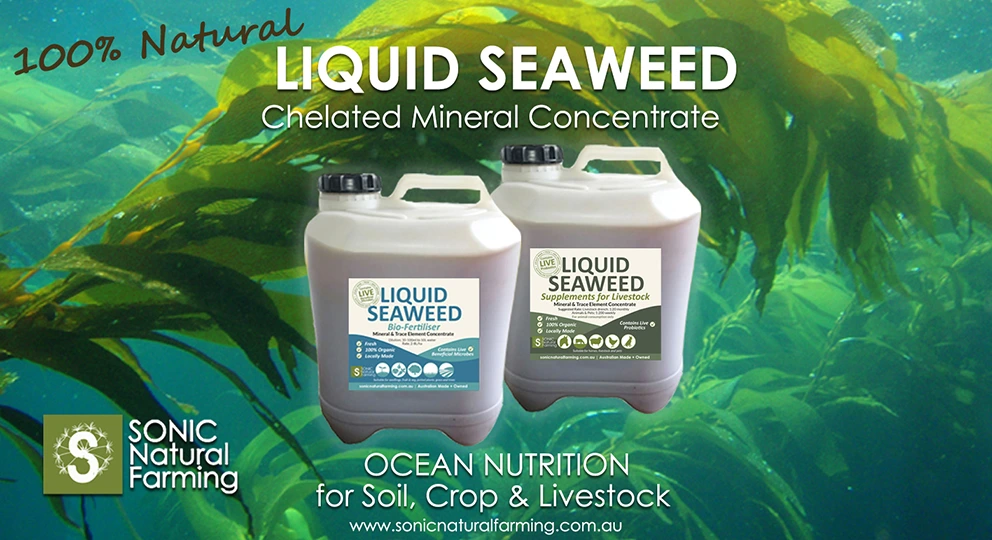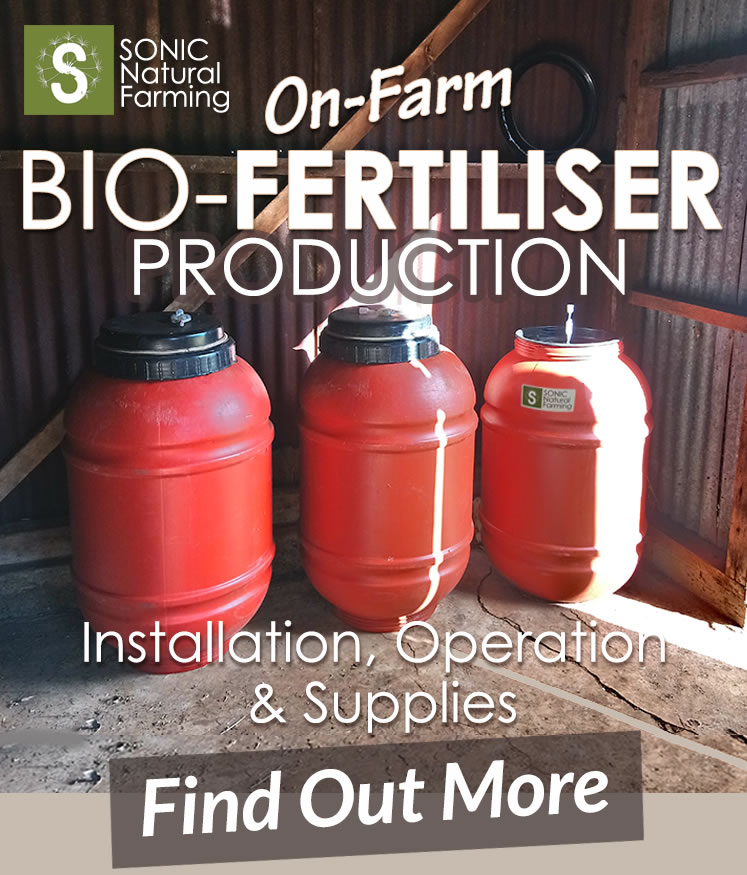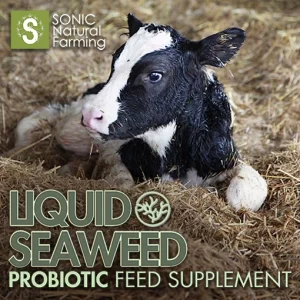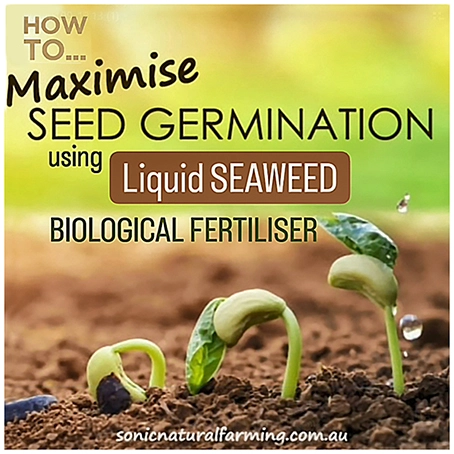Iodine is an essential trace element that plays a critical role in both soil health and livestock wellbeing. Despite its importance, many farmers overlook iodine deficiencies, which can lead to a host of problems, including stunted growth in crops and reproductive issues in animals.
From understanding the signs of deficiency to implementing practical, natural solutions, this article will explore effective strategies for remedying iodine deficiency in your soil and livestock, ensuring that your crops and animals thrive.
Australia’s Iodine Deficiency
Iodine deficiency in Australian soil presents a significant challenge for farming, particularly in regions where soil levels are naturally low.
Iodine is an essential nutrient that must be present in the soil to be absorbed by plants and, subsequently, grazing pastures
When crops and forage lack adequate iodine, this deficiency can transfer up the food chain, impacting livestock that rely on these plants for nutrition.

Symptoms of Iodine Deficiency in Livestock
Iodine deficiency can have significant impacts on livestock health, and farmers should be vigilant for the following symptoms:
Goiter: Swelling in the neck area due to an enlarged thyroid gland.
Poor Growth Rates: Stunted growth and reduced weight gain in young animals.
Reproductive Issues: Fertility problems, including irregular estrous cycles and increased miscarriages.
Low Milk Production: Decreased milk yield in lactating animals.
Skin and Coat Problems: Dry, flaky skin and rough or unkempt coats.
Weakness and Lethargy: General signs of weakness or fatigue in livestock.
Hypothyroidism: Symptoms such as sluggishness and low energy levels.
By monitoring these signs, farmers can take proactive measures to address iodine deficiency and promote the overall health of their livestock.
The Critical Importance of Iodine for Livestock
To understand why iodine is essential for the health of livestock (and humans), let’s briefly explore some of the key functions in which iodine plays a direct role.
1. Iodine Assists Reproductive Health
Iodine plays a crucial role in the reproductive health of livestock. Adequate iodine levels are vital for the production of thyroid hormones, which regulate various bodily functions, including metabolism and reproductive processes. In animals, thyroid hormones influence the development of reproductive organs, the timing of estrus cycles, and overall fertility.
A deficiency in iodine can lead to significant reproductive issues, such as prolonged gestation, infertility, and increased rates of miscarriage
Pregnant livestock, in particular, require sufficient iodine to ensure the healthy development of their offspring. Without it, there is a higher risk of complications, including goiter in newborns—a condition characterised by an enlarged thyroid gland that can affect growth and development.
Furthermore, livestock with healthy levels of iodine have been shown to improve reproductive performance, leading to higher conception rates and healthier pregnancies.
For farmers, ensuring their livestock receive adequate iodine is not just about meeting nutritional needs; it directly impacts productivity and profitability. By prioritising iodine in livestock diets, farmers can enhance reproductive health, resulting in a more robust and sustainable farming operation.

2. Iodine Supports Immune Function
A well-functioning immune system is paramount for livestock, as it protects against infections and diseases that can negatively impact productivity and wellbeing.
Inadequate iodine levels can compromise immune function, making animals more susceptible to diseases and infections. This can result in increased veterinary costs, reduced productivity, and even higher mortality rates in severe cases.
By ensuring that livestock diets contain adequate levels of iodine, farmers can bolster the immune response, leading to healthier animals
Incorporating iodine into livestock diets is crucial not only for overall health but also for enhancing immune support. With iodine in their diet, farmers can ensure their animals are better equipped to fight off infections, ultimately leading to improved productivity and reduced reliance on veterinary interventions.
3. Iodine Improves Growth and Development
Iodine is vital for the production of thyroid hormones, particularly thyroxine (T4), which regulates metabolism and energy levels.
In young animals, adequate levels of these hormones are necessary for optimal growth, as they help convert nutrients into energy and support the development of tissues and organs.
A deficiency in iodine can lead to stunted growth, reduced weight gain, and developmental abnormalities
Young animals that lack sufficient iodine may struggle to reach their genetic potential, which can negatively impact their overall productivity as they mature. For farmers, this can mean lower yields and profitability, as underdeveloped livestock are less likely to meet market demands.
In addition to promoting healthy growth rates, iodine supports other aspects of development, including muscle and bone formation. Young animals require proper nutrition to develop strong skeletal structures and muscle mass, both of which are influenced by adequate iodine intake.
Furthermore, a well-nourished animal is better equipped to handle stressors, whether environmental or physiological, leading to improved resilience and overall health.

How To Ensure Your Livestock are Accessing Iodine
To ensure animals receive sufficient iodine, a safe approach is to enhance the soil mineral profile and incorporate iodine-rich plants and organic supplements into their diet.
Without adequate soil iodine, farmers may face challenges in maintaining the health and productivity of their livestock, making it crucial to address soil nutrient management to ensure that iodine levels are sufficient for both plant and animal health.
To maximise iodine levels in forage, it’s important to:
Test Soil: Regularly assess soil iodine levels to identify deficiency.
Amend Soil: Use iodine-rich amendments, such as seaweed or mineral supplements, to enhance soil iodine content.
Choose the Right Plant Varieties: Select forage plants known to effectively accumulate iodine when grown in adequate iodine conditions.

Maximising Iodine Intake for Livestock through Strategic Crop Selection
To maximise dietary iodine intake for livestock, it’s crucial to select crops with high iodine content, such as iodine-enriched forage plants. However, for these plants to effectively accumulate iodine, it must first be present in the soil. By implementing these strategies, you not only ensure that your livestock receive adequate iodine but also promote soil health and overall farm sustainability.
Examples of iodine-rich forage plants include:
Iodine Enriched Clover: Certain varieties of clover may have enhanced iodine levels, especially when grown in iodine-rich soils.
Iodine-Accumulating Plants: Some plants, such as Nasturtium and Brassica species (like kale and mustard), can accumulate iodine when grown in iodine-sufficient soils.
Fennel: This herb can also contain significant levels of iodine.
Spinach: While not extremely high, it can still contribute to iodine intake if included in the diet.
Borage: This herb can be a useful addition for its iodine content.
Lucerne (Alfalfa): Depending on soil conditions, it can provide moderate levels of iodine.
Incorporating these plants into livestock diets can help ensure adequate iodine intake, especially when iodine levels in the soil are optimised.
While generally safe for livestock, excessive consumption of some plants can lead to bloat in ruminants. Always consult a livestock nutritionist when introducing new plants into livestock diets to ensure safety and proper balance.

Harnessing Australian Kelp for Optimal Iodine Levels in Livestock
Durvillaea potatorum, commonly known as Bull Kelp, is known to contain significant levels of iodine, as is typical for many brown seaweeds. The iodine content can vary based on several factors, including the environment in which it grows and the specific harvesting methods used.
Six Australian brown seaweed Kelps with commercial potential for dietary mineral composition are; Cystophora torulosa, Caulocystis uvifera, Durvillaea potatorum, Ecklonia radiata, Hormosira banksii and Phyllospora comosa.
Iodine Concentrations in Brown Kelp Varieties
Crayweed (Phyllospora comosa) contains the highest levels of iodine, and is a golden seaweed that forms extensive underwater forests. Crayweed became extinct from Sydney’s coastline in the 1980s and its disappearance has been linked to past water pollution. Although water quality was greatly improved since then, this species has not returned.
Studies have reported that the iodine concentration in Australian Bull Kelp, Durvillaea potatorum, can range from approximately 10 to 80 mg of iodine per gram of dry weight.

Iodine as a Remedy by Pat Coleby – Author and Farmer
“Oxylates tend to act the same way as nitratew in the system. Nitrate poisining can be caused by capeweed, broad-leafed clovers and variegated thistles, which store nitrates.
Normally in sunny weather the nitrate reductase enzyme turns the nitrates in digestible protein. When as in the 1983-84 drought, the winter is suless and dry thunderstorms are common, the nitrates build up to dangerous levels. When the capeweed came away in spring 1984, hundreds of animals aross the northern parts of Victoria died.
In this situation, the standard veterinary line ‘Animals always die after a drought’ was not good enough for me. I’d lost my milking herd and my living. I found out the above information, first from France and then confirmed by Professor Selwyn Everists’s Poison Plants in Australia. Initially, I prevented the first wave of deaths in my herd by feeding double the usual amount of dolomite.
The deaths caused by iodine deficiency did not occur until after the capeweed had dried off, which was when I started to look for answers. Supplementation with seaweed and/or iodine stopped further deaths in my own herd and in those of my clients.
I asked Dr Terry Thomas, then head of the Victorian Department of Agriculture, to publicise through the farmers’ newspaper, the Weekly Times, the need to supplement herds with iodine in some form. He did so early 1980, and that was the end of the deaths.
Nitrate poisining is unmistakable: the blood goes black from lack of oxygen.” – In her book Natural Farming: A Practical Guide, Pat Coleby discusses various pasture grasses and highlights some great insights on page 79.
Summary
By ensuring that livestock receive sufficient iodine in their diets, farmers can promote robust growth and development in young animals. This not only enhances individual animal performance but also contributes to the long-term productivity and sustainability of the entire farming operation.
Investing in measures like strategic crop selection and supplementing with liquid kelp is a decision that can yield significant returns in livestock health and farm profitability.

A Versatile Iodine-Enriched Solution for Soil and Livestock Health
SONIC Natural Farming Liquid Seaweed for Soil and Livestock is derived from Durvillaea potatorum, kelp, renowned for its high iodine content. This multi-purpose liquid kelp can be used as a soil amendment, foliar spray, and livestock supplement, providing a natural source of organic iodine, balanced by nature, and a full spectrum of minerals and trace elements.
When applied to soil, it enhances nutrient availability and promotes plant health, while foliar applications help improve crop vitality.
For livestock, SONIC Liquid Seaweed introduces safe and effective levels of iodine, supporting optimal health and preventing deficiencies. This makes it an excellent choice for farmers seeking to boost soil quality and enhance animal nutrition sustainably.
Disclaimer:
The information provided in this article is for general informational purposes only and is not intended as professional advice. Each farming situation is unique, and we encourage farmers to assess their individual circumstances before making any decisions. The insights shared here are based on our direct experience and independent research. We have compiled this information to support and guide farmers exploring regenerative farming practices in Australia, but it is always advisable to seek advice tailored to your specific needs and conditions.
At SONIC Natural Farming, we’re committed to helping farmers easily access Biological Fertilisers, at the same time as saving big!
SONIC On-Farm Production Services minimise transportation costs. Plus, by reusing packaging on the farm, farmers can reduce plastic waste and packaging expenses, saving even more.
But that’s not all—SONIC Production and Training Packages empower farmers to produce their own Biological Fertilisers using the most eco-friendly and cost-effective solutions in the Australian organic fertiliser market today.
Want to see how we can help you beat the high cost of fertiliser?

















